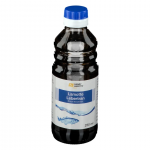uglevod
Senior Member
- Messages
- 220
Vitamin A supplementation may cause immune system to 'forget' past infections.
https://www.sciencedaily.com/releases/2015/06/150630121406.htm
Although vitamin A supplementation can have profound health benefits when someone is deficient, new evidence is emerging to show that vitamin A supplementation above and beyond normal levels may have negative health consequences. A new research report published in the July 2015 issue of the Journal of Leukocyte Biology may help to explain why too much vitamin A can be harmful. Too much vitamin A shuts down the body's trained immunity, opening the door to infections to which we would otherwise be immune. This study adds to the arguments that vitamin A supplementation should only be done with clear biological and clinical arguments. Furthermore, it also suggests that low vitamin A concentrations in certain situations may even be "normal."
"This study helps to explain the mechanisms of anti-inflammatory effects of vitamin A and by doing so opens the door to identifying novel ways to modulate the immune response and restore its function in situations in which it is dysregulated," said Mihai G. Netea, M.D., Ph.D., a researcher involved in the work from the Department of Internal Medicine at Radboud University Medical Center in Nijmegen, The Netherlands............
Moderator note: to continue reading the article, please go to the above link.
https://www.sciencedaily.com/releases/2015/06/150630121406.htm
Although vitamin A supplementation can have profound health benefits when someone is deficient, new evidence is emerging to show that vitamin A supplementation above and beyond normal levels may have negative health consequences. A new research report published in the July 2015 issue of the Journal of Leukocyte Biology may help to explain why too much vitamin A can be harmful. Too much vitamin A shuts down the body's trained immunity, opening the door to infections to which we would otherwise be immune. This study adds to the arguments that vitamin A supplementation should only be done with clear biological and clinical arguments. Furthermore, it also suggests that low vitamin A concentrations in certain situations may even be "normal."
"This study helps to explain the mechanisms of anti-inflammatory effects of vitamin A and by doing so opens the door to identifying novel ways to modulate the immune response and restore its function in situations in which it is dysregulated," said Mihai G. Netea, M.D., Ph.D., a researcher involved in the work from the Department of Internal Medicine at Radboud University Medical Center in Nijmegen, The Netherlands............
Moderator note: to continue reading the article, please go to the above link.
Last edited by a moderator:


